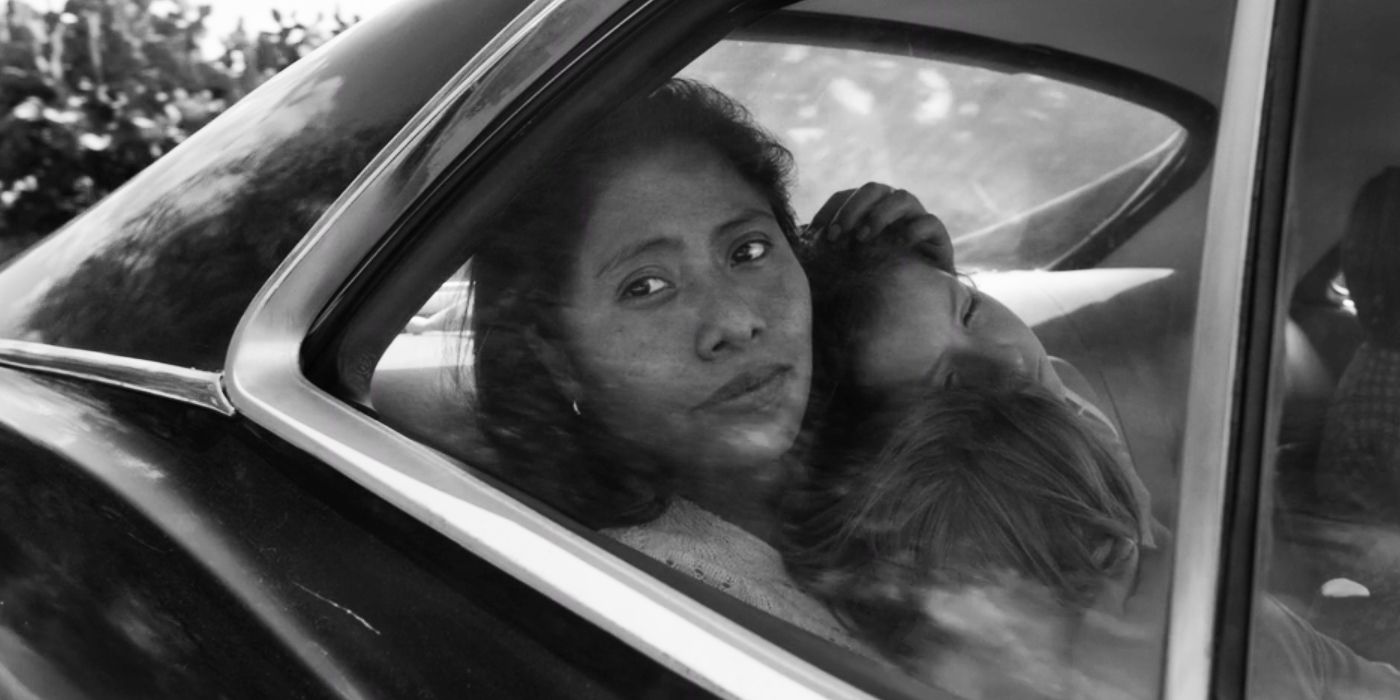
What happens at the end of Roma, and what does it all mean? One of Netflix's boldest films acquisitions so far, Roma is the latest project from director Alfonso Cuarón. A celebrated filmmaker whose major works so far include Harry Potter and the Prisoner of Azkaban, Children of Men and Gravity, Cuaron's newest is more biographical, a picture about family life in early 1970s Mexico City.
That's not to suggest Roma isn't as technical and grand Alfonso's other work, far from it - it features many of his trademark long takes and uses a complex soundscape to recreate the setting - but the drama and storytelling of the movie is more humanistic and intimate, following a maid and the family that employs her as they go through a tough year involving pregnancy, divorce and political strife.
RELATED: Our Roma Review
As such, the comings and goings of different characters can be missed, and themes glossed over among all the dialogue and wide-angle shots. Let's break down what occurs in Roma's ending and contextualize it historically.
- This Page: What Roma's Ending Really Means
- Page 2: The Historical Context of Roma
What Roma's Ending Means
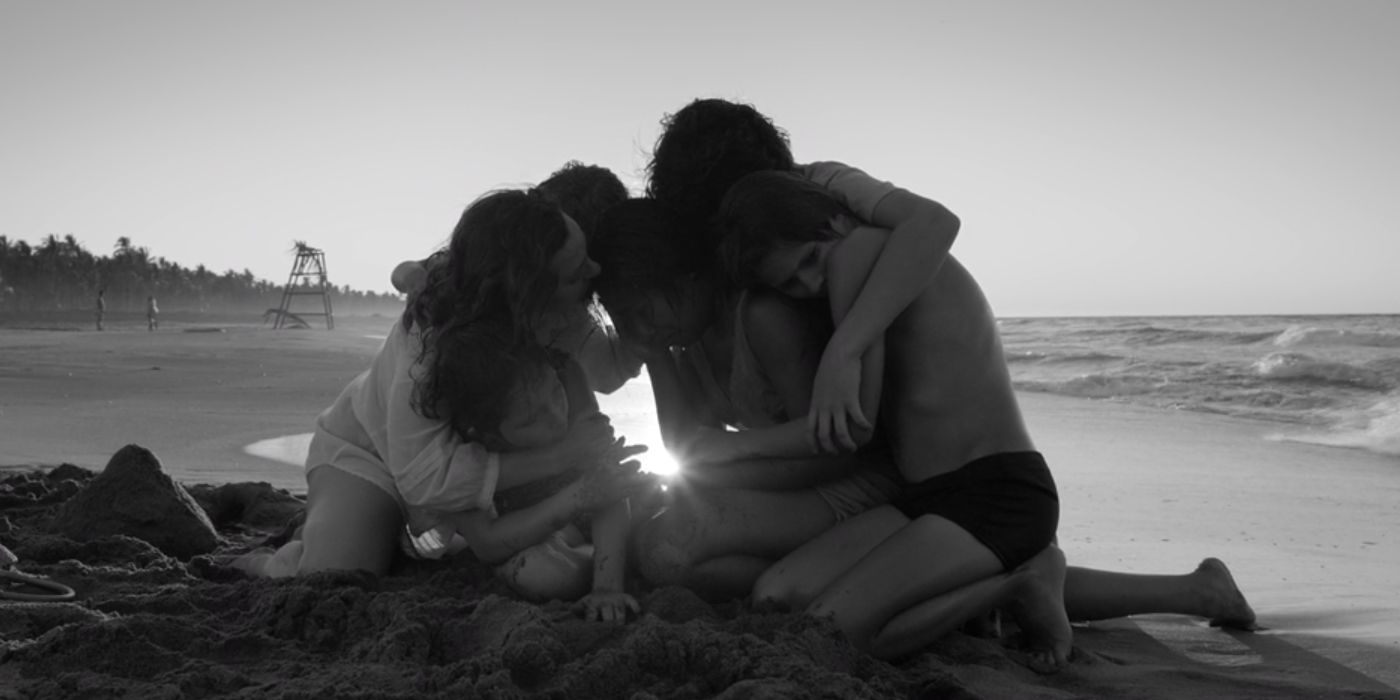
Roma's last act throws a lot at the audience after two-acts of relatively small events. Cleo (Yalitza Aparicio) has her baby, but it is stillborn, leading to her having post-mortem depression. The baby's father, Fermín (Jorge Antonio Guerrero), had rejected her and threatened to beat her up if she tried to contact him again – he later stumbles onto her while looting a store with friends during the Corpus Christi student riots (and event that leads to her ill-fated labor).
The family Cleo works for has also begun coming to terms with their father, Antonio, also abandoning them. The mother, Sofia (Marina de Tavira), finally explains to the children he wasn't on a business trip but had moved out and, going by his failure to send any sort of financial aid back to them, will not be coming back. The last set-piece of Roma is a family holiday they take so Antonio can take his things out of the family home.
It's on that holiday that the climax of the narrative occurs, in which two of the children almost drown swimming at the beach, only for Cleo to save them. All the kids, Cleo and Sofia huddle together after the incident, Cleo breaking down and admitting she didn't really want her child, and Sofia telling her the family loves her and they want to keep her around. Roma's final scene then has the family returning home, getting used to the slight alterations from their now gone father's things, and regular life resuming.
The conflict, as it were, had been survived because of the unity Cleo, the other maid Adela and the remaining family have in each other. Cleo caring for the children allows Sofia to work full-time and process losing her husband, and the family home serves as a strong foundation from which Cleo receives value and routine that stops her from being too consumed by the traumatic events.
Fermín Becomes Radicalized
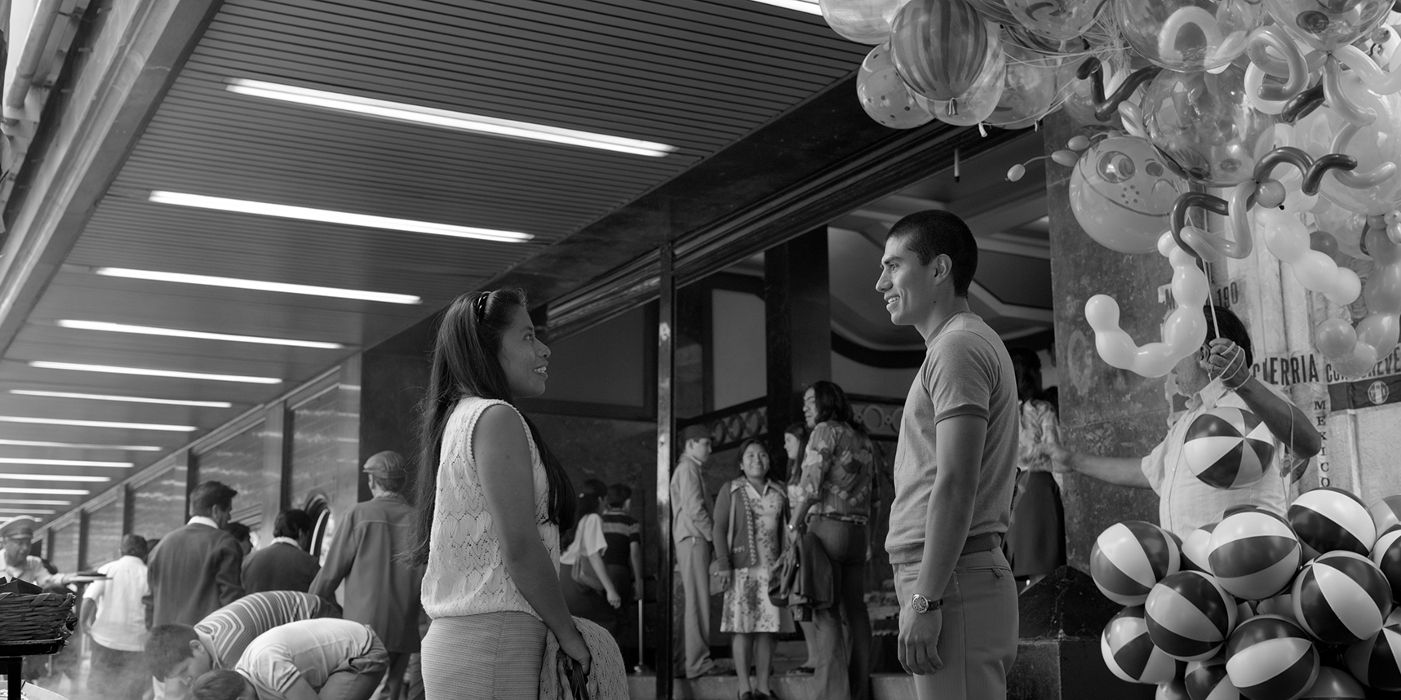
A key plot in Roma is the child of Fermín and Cleo. Before the young couple get in bed together in a hotel room, he demonstrates his martial arts skills and explains to her that martial arts saved his life. He grew up in slums fostered by his aunt, and had become involved in criminal activity, drinking and doing drugs. The discipline and principles of control and internal calm helped him make a better life for himself, all of which is revealed to be a shallow platitude when he abandons Cleo at a movie theater.
When she shows up to a martial arts practice heavily pregnant, he informs her he will beat her and the child should she try to track down any more. They incidentally end up confronting each other when he robs the furniture store she's in during a riot. He stares at her for a moment before running out with his accomplices, Cleo then going into labor. It unfolds in the background, but Fermín is a representation of the radicalized Mexico unfolding in the background of Roma.
Antonio Leaves His Family
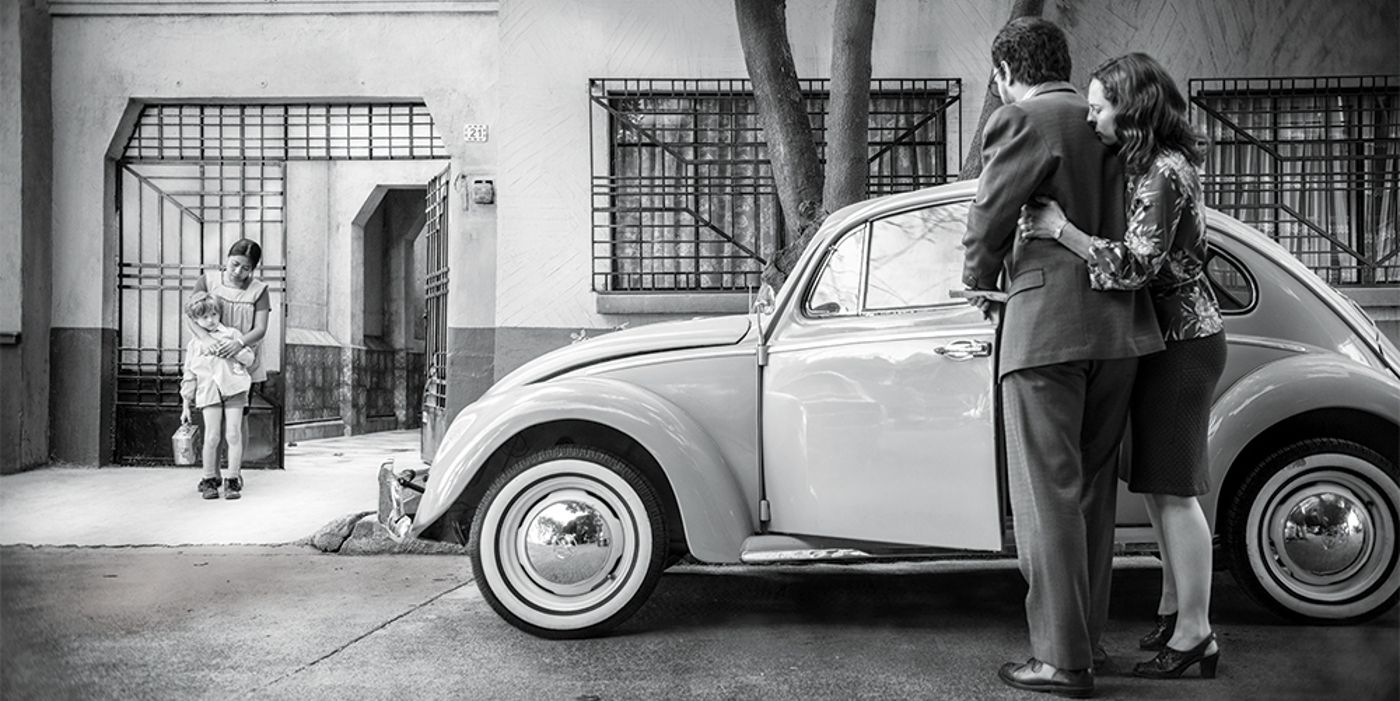
One of the least-seen major characters, Fernando Grediago's Antonio is only on-screen in Roma for mere moments overall. The doctor is revealed to be a pedantic man in his most prolific sequence where he meticulously parks his car in the driveway of the house. He's heard arguing with Sofie about the work of the maids, citing the amount of dog manure in the driveway. He's later seen driving away from a conference in Quebec, Canada under duress from Sofie, and later again one of the kids spots him outside a movie theater with a young woman. It's presumed that his children will have a minimal relationship with him at best.
Page 2 of 2: The Historical Context of Roma
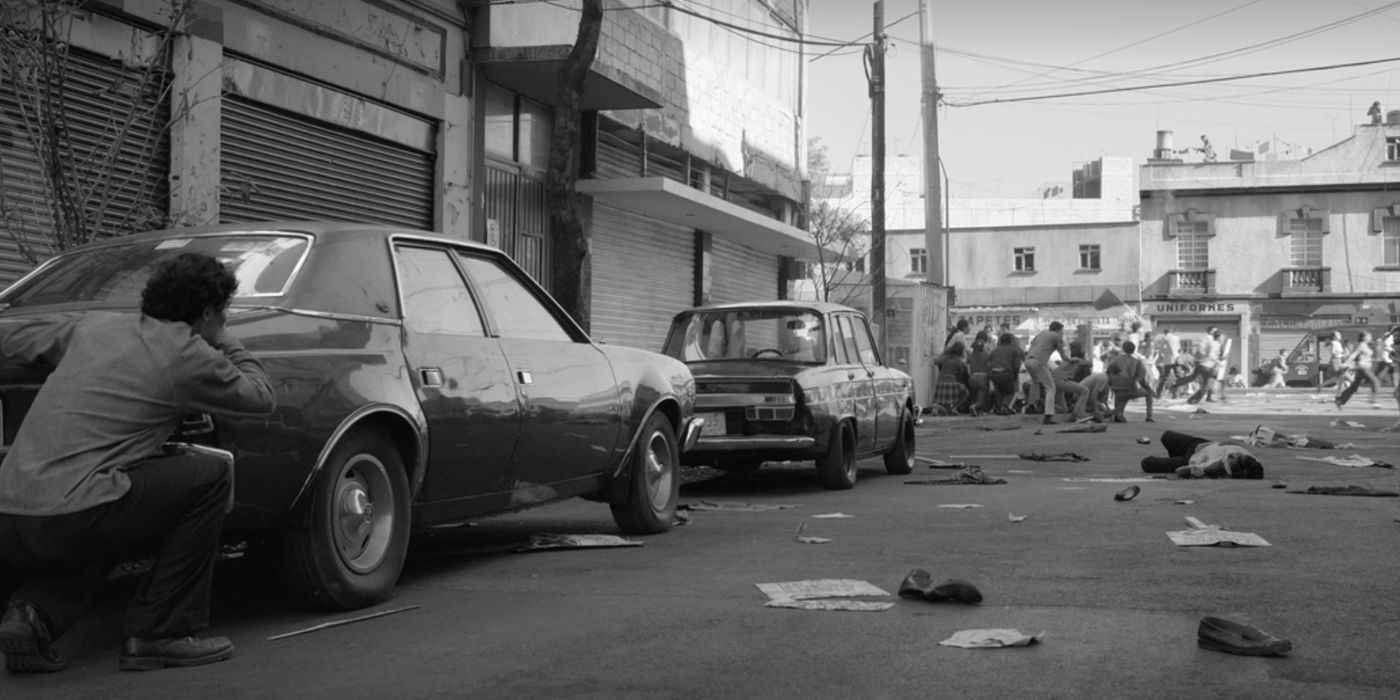
Mexico Politics During Roma
The late '60s and early '70s were a complicated time for Mexico politically. Unease was rife as a large portion of the population, particularly young people of high-school and college-going age, who were unhappy with the government. This period is framed as Mexico's "Dirty War" because leaders tried to silence and minimize dissent using troops and militarized police, activists and prominent members of insurgent groups would be captured, tortured and executed, and protests would escalate to violent stand-offs.
One such protest-turned-riot was the Tlatelolco massacre in 1968. Reports vary on what actually happened, but it is known that over 1,000 protesters were arrested and many others were killed; some documents suggesting snipers were utilized by the government. There would be further civil conflict as the presidency moved from Gustavo Diaz Ordaz to Luis Echeverria in 1970. Echeverria's populist policies can be felt in Roma, his model for land redistribution affecting Cleo's mother and being discussed by relatives when the family visits for Christmas and New Years.
The Corpus Christi Massacre In Roma
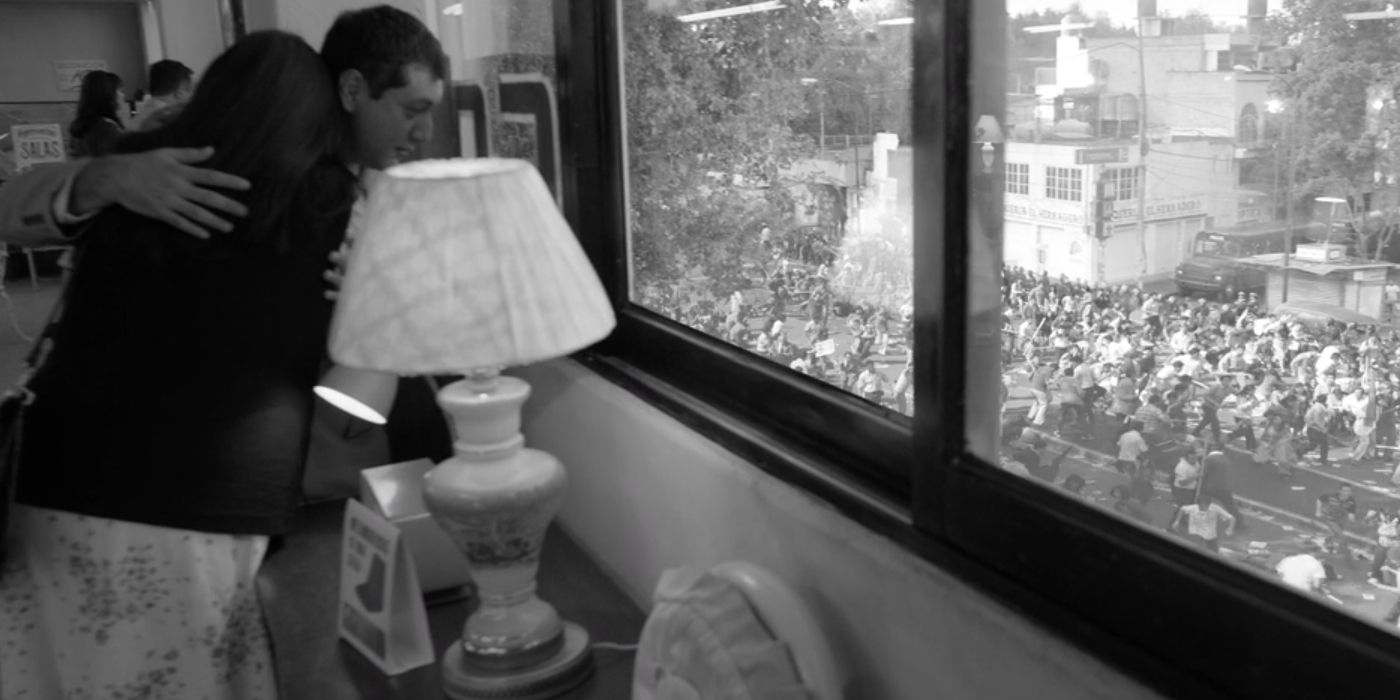
Teresa, Sofia's mother, takes Cleo furniture shopping while protests are happening the annual Corpus Christi festival. The 1971 demonstration is infamous, seeing the current administration double-down on suppression of alternate political views after presidential efforts appear to show things improving.
Students organized a march to show solidarity with a university whose budget had been affected because of a government proposal they put together. When people showed up on the day, t herewere police in riot gear and parts of their proposed route were blocked off. What's more, a group of CIA-trained special operatives known a Los Halcones were present, using military-grade weapons against demonstrators. Many were killed and hurt, hospitals became backlogged with the wounded as the Los Halcones visited waiting to further intimidate their victims. State police were instructed not to interfere, nobody was brought to justice for what occurred, and extremist members of the rally were blamed.
Fermín is seen at the center of the fray, helping a small, gun-wielding group steal and killing an innocent man. They're only shown killing one person, but the dark suggestion is that they've left a few in their wake. No further context is given as to his future, but it seems likely he became involved in one of the radical guerrilla groups that formed in the wake of Corpus Christi.
Roma's Family Are Immune to Mexico's Upheaval
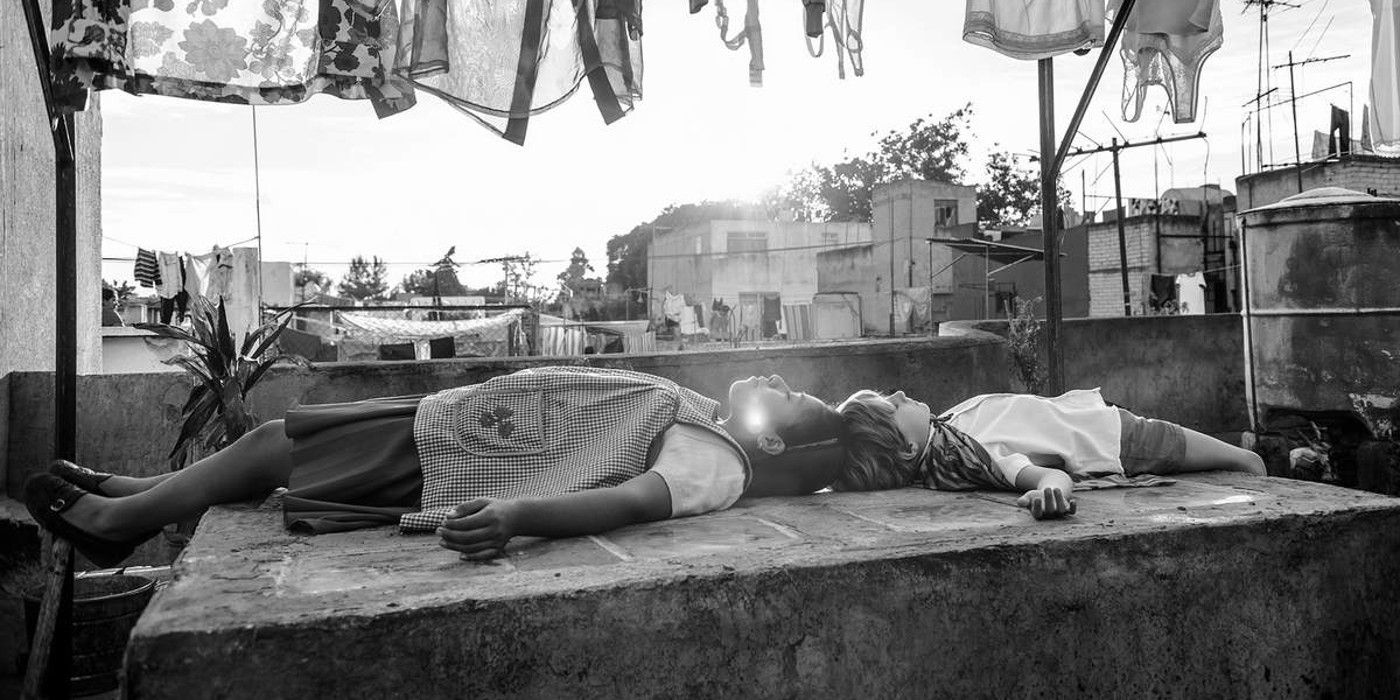
Among all of this, the family in Roma are mostly unaffected. The parents are a doctor and biochemist, upper-class jobs that pay very well, hence having a spacious home, two maids and a private driver. Their removal from the lower classes is a minor theme reflected in Cleo's reminiscing about her home village and talking about visiting her mother – she had to leave that life entirely to work here, and even then she's only a part of this higher echelon because she has a skill they need.
Towards the end of Roma, we learn Sofie will be switching careers to publishing, another well-to-do profession at the time. She has the freedom to move between industries unburdened, unlike the lower classes who're often stuck with whatever job they can find. The open and closing frames are a washed floor and a clear sky – Roma's story may not make them feel like it, but these are truly the lucky ones.
Next: Oscars 2019 Best Picture Predictions
from ScreenRant - Feed https://ift.tt/2A1V5HH
via IFTTT







0 comments:
Post a Comment